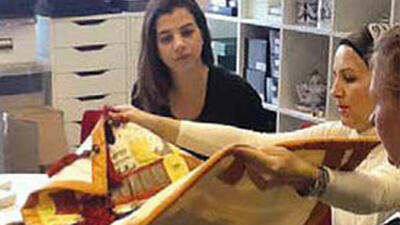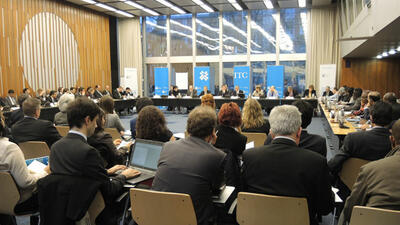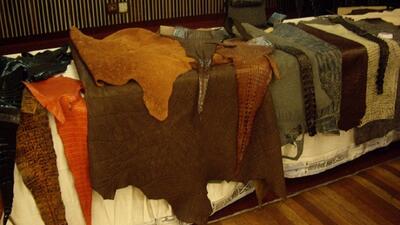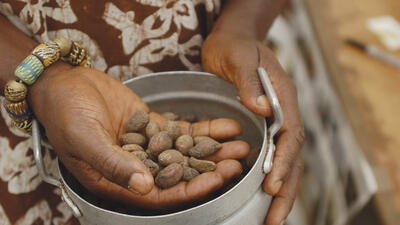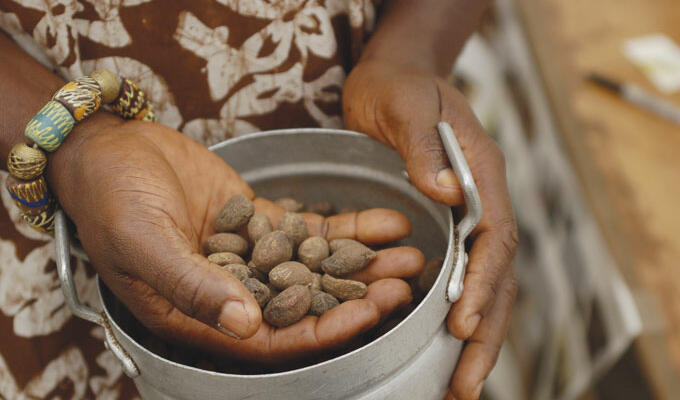
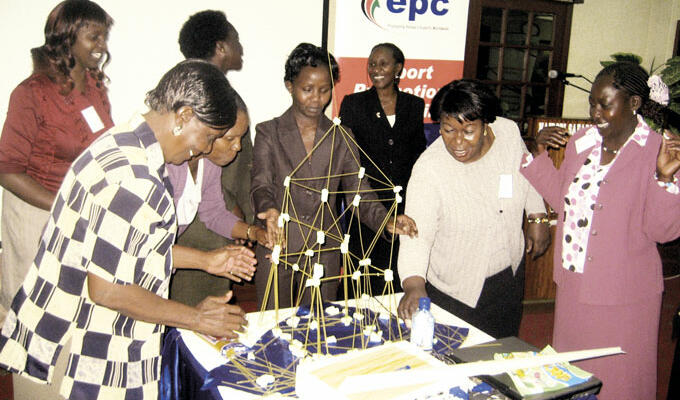
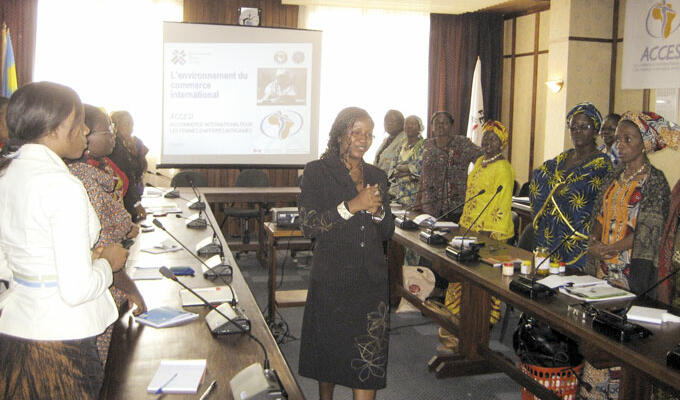
Access! To export for businesswomen in Africa
Since 2007, the ITC ACCESS! Export Training Programme, funded by CIDA, has been dedicated to addressing these problems by strengthening the competitiveness of more than 2,500 women exporters in 20 African countries. It does this through a network of more than 60 certified national trainers, four certified lead trainers and a comprehensive training package of 32 modules, available in both English and French. ACCESS! also works to build the capacity of TSIs such as trade ministries, chambers of commerce and women’s business associations to support exporters.
ACCESS! is part of the Can$ 19.8 million PACT II, ITC’s largest programme. It involves a strategic partnership between ITC, as executing agency, selected RECs, as main counterpart organizations, and TSIs. The programme’s main areas of focus are: encouraging policy dialogue among regional communities; championing regional trade development; strengthening TSIs; upgrading business skills and market linkages; and supporting women as successful exporters.
With more than one-third of companies worldwide at least part-owned by women, women entrepreneurs are a growing economic force. One of these is Antoinette Koudjal Mangaral from Chad, who was already an established businesswoman when she signed up for ACCESS! training.
Mangaral founded her business, Établissements KAMA, in 1995, specializing in the collection and processing of shea nuts into shea butter. Sub-Saharan Africa already grows and supplies most of the world’s shea nuts, but the region’s output has yet to reach its full potential. Only a small percentage of the country’s millions of shea trees are harvested, despite strong local demand for shea butter for use in cooking and cosmetics. Export potential is also considerable – Europe alone consumes up to 60,000 tons of shea butter every year, mostly in the chocolate industry.
When Mangaral launched her business, she knew that its success would depend on the development of the agriculture sector across the country as a whole. To ensure she was in a good position to influence and promote the sector, she offered to head the Chadian Association of Agribusiness Operators in 2003. Under her stewardship the association grew and acquired many new members. Mangaral also joined an association for women artisans, which has a membership of more than 1,000, some of whom supply raw materials to Établissements KAMA. Moreover, she has been a member of the Chadian Association of Women in Business for over a decade, where she mentors businesswomen in rural areas. As a result of her success and positive actions, Mangaral has won recognition in Chad both for her contribution to the country’s economic development overall and for promoting women in business.
Yet even with her significant experience, Mangaral found it useful to undertake an ACCESS! training programme. The impact of that experience was a transformation process that lasted many months. She explained: ‘I undertook a total restructuring process of my business. I set out to organize all of the tasks being done in the company, we strengthened our accounting system and I got more involved in certain areas that required better supervision. I now train my staff so that they can manage business operations at home while I am away developing export markets. I have also transferred skills for better managing the supply chain. Everything is up and running now.’
"I undertook a total restructuring process of my business. I now train my staff so that they can manage business operations at home while I am away developing export markets." Antoinette Koudjal Mangaral, businesswoman, Chad
‘I particularly benefited from the training sessions on negotiating skills, pricing and INCOTERMS® 2010,’ she said, referring to the International Chamber of Commerce’s predefined commercial terms, widely used in international transactions. ‘In the past, I didn’t concern myself so much with these areas. People would approach us directly to purchase our products, but I knew very little about the terms and conditions of contracts. The ACCESS! training helped me to formalize contracts around business deals and these have proven to better secure my interests.’
Établissements KAMA now exports to Cameroon, the Central African Republic, Congo, Nigeria and Europe, and is extending its line of products to include peanuts and sesame oil. All of the company’s products are certified organic, which Mangaral says gives her company an advantage in new markets compared to competitors that lack such certification. In the future, Établissements KAMA will also improve its packaging in order to better access export opportunities.
The future looks very bright for the business Mangaral founded 17 years ago. Demand for shea butter remains strong and the economic infrastructure needed to service that demand is significantly more advanced than it was when she embarked on her journey – due in part, of course, to her dedication to the development of the agriculture industry as a whole.
Several African women business leaders say that, like Mangaral, the technical support they received through the ACCESS! programme’s export training and tailored business counselling programmes have led them to restructure their businesses to optimize efficiency performance and maximize the opportunities to trade regionally and internationally.
But as Sébastien Turrel, Senior Trade Promotion Officer in the ITC Office for Africa, said: ‘With ACCESS! services in high demand, we have to make sure we leave a strong legacy so that activities will continue beyond the lifespan of the programme. It’s there, it’s working and it’s country-driven.’




